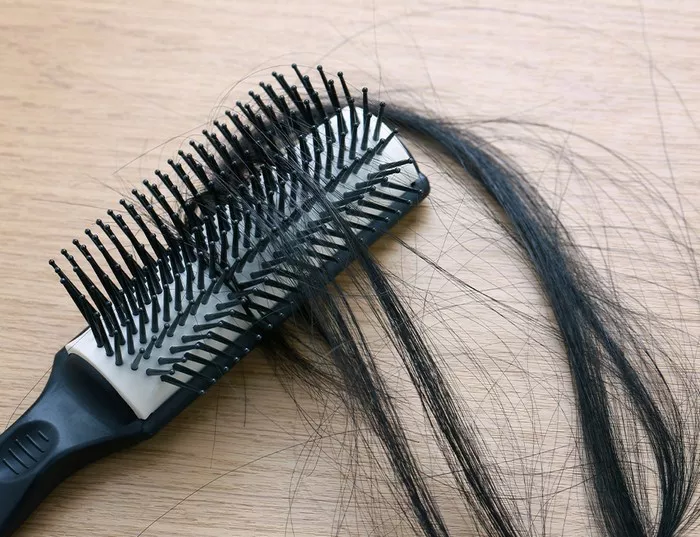In the realm of hair care, myths and misconceptions often circulate, leaving individuals grappling with concerns about the impact of daily habits on the health of their tresses. One prevalent notion revolves around the association between hot showers and hair loss. This exploration seeks to dissect the claims, address the lingering doubts, and ultimately answer the question – Do Hot Showers Cause Hair Loss?
I. The Shower Scene: Understanding the Hair Shaft and Scalp Dynamics
1. The Basics of Hair Structure: A Closer Look at the Follicle and Shaft*
To unravel the relationship between hot showers and potential hair loss, it’s essential to grasp the fundamentals of hair structure. Each hair strand originates from a hair follicle, embedded in the scalp. The hair shaft extends beyond the scalp’s surface, and its health is influenced by various internal and external factors.
2. The Scalp’s Role: A Haven for Hair Follicles
The scalp, housing the hair follicles, plays a pivotal role in the health of the hair. It serves as the foundation from which strands emerge, and its condition significantly impacts the overall well-being of the hair. Maintaining a healthy scalp environment is integral to fostering robust and vibrant hair.
II. The Temperature Dilemma: Separating Fact from Fiction
1. Debunking the Myth: Hot Showers and Hair Loss
The belief that hot showers directly cause hair loss is, in essence, a myth. While hot water can strip the hair of its natural oils and potentially lead to dryness and brittleness, it does not directly contribute to hair loss. Hair loss is a multifaceted phenomenon influenced by genetic, hormonal, and environmental factors.
2. The Impact on Scalp Health: Addressing Dryness and Irritation
Hot water can compromise the health of the scalp by stripping away its natural oils. This may result in a dry and irritated scalp, potentially exacerbating conditions such as dandruff. However, these effects are more related to the scalp’s condition than a direct link between hot showers and hair loss.
III. Hair Follicle Resilience: Understanding the Growth Cycle
1. The Hair Growth Cycle: An Intricate Dance of Phases
Hair undergoes a continuous growth cycle consisting of anagen (growth), catagen (transitional), and telogen (resting) phases. Hair loss is a natural part of this cycle, with shed hairs eventually replaced by new ones. Understanding this cycle is crucial in discerning the normal shedding process from abnormal hair loss.
2. Genetic and Hormonal Factors: The Primary Culprits of Hair Loss
The primary contributors to hair loss are genetic predisposition and hormonal influences. Conditions such as androgenetic alopecia (pattern baldness) and hormonal fluctuations play a more significant role in determining hair loss patterns than external factors like shower temperature.
IV. Strategies for Hair-Friendly Showers: Finding the Right Balance
1. Optimal Shower Temperature: Balancing Warmth and Hair Health
While extremely hot water may strip the hair of its natural oils, opting for warm water strikes a balance between a soothing shower experience and maintaining scalp and hair health. Lukewarm water helps prevent excessive dryness and irritation, fostering a conducive environment for hair growth.
2. Gentle Cleansing Habits: Choosing Mild Shampoos and Conditioners
The choice of hair care products is equally crucial. Opting for mild shampoos and conditioners helps maintain the hair’s natural moisture balance. Additionally, gentle massaging of the scalp during washing promotes blood circulation, supporting the health of hair follicles.
Conclusion: Dispelling the Steamy Notion – Hot Showers and Hair Loss
In conclusion, the assertion that Hot Showers Causes Hair Loss stands as a myth debunked by an understanding of hair biology and growth cycles. While hot water may impact the scalp’s health, it is not a direct culprit in causing hair loss.
Recognizing that hair loss is a complex interplay of genetic, hormonal, and environmental factors empowers individuals to focus on holistic approaches to hair care. Maintaining a balanced shower temperature, choosing hair-friendly products, and adopting gentle cleansing habits contribute to a nurturing environment for the scalp and hair.
Ultimately, the steamy dilemma of hot showers and hair loss finds resolution in dispelling the myth and embracing an informed and balanced approach to hair care. By fostering a holistic understanding of the factors influencing hair health, individuals can embark on a journey toward maintaining luscious locks without the unnecessary worry of the shower temperature.

